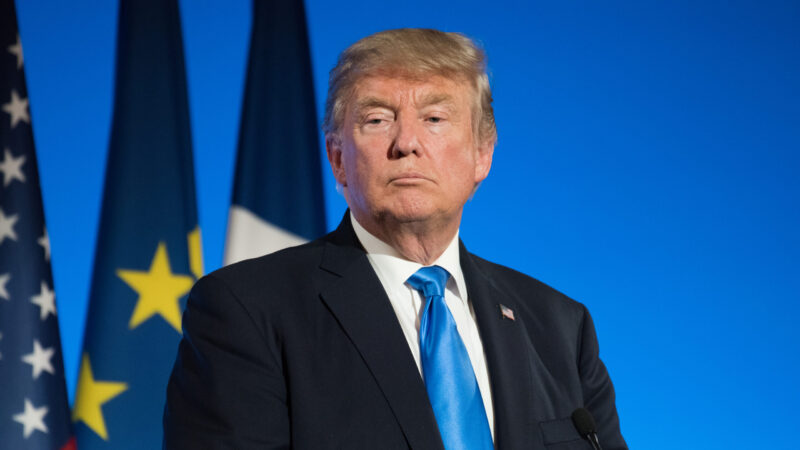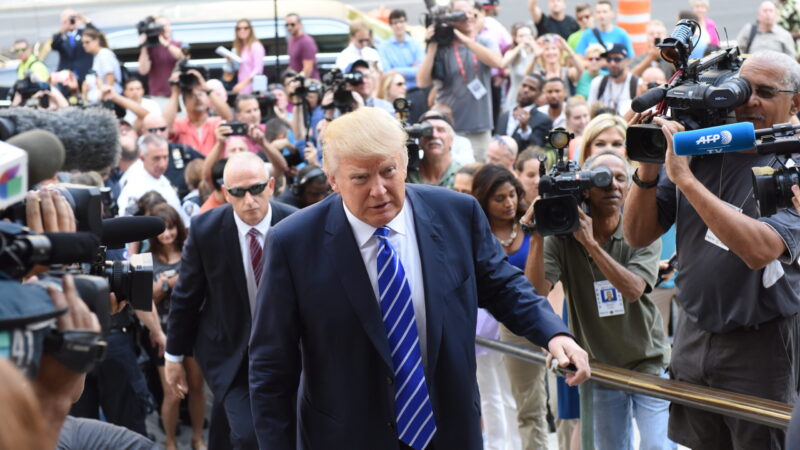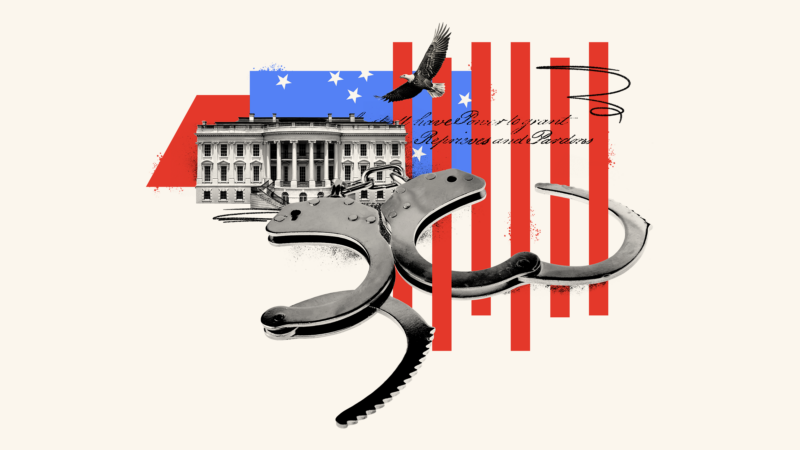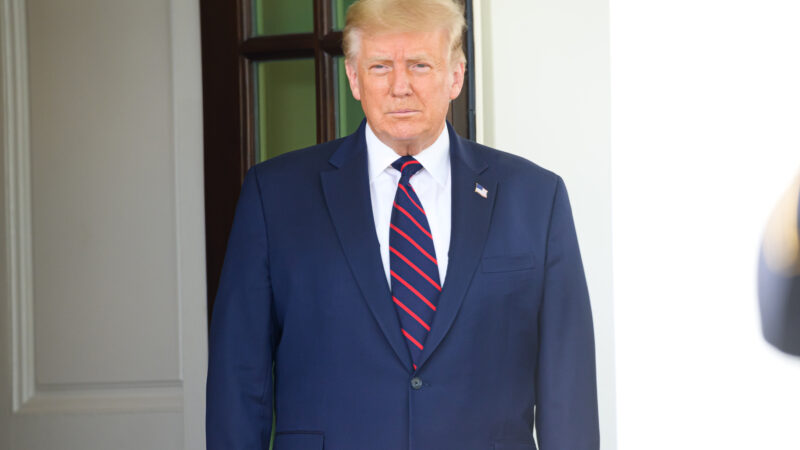Memo: Key Questions About The President’s Authority to Initiate a Nuclear War
- November 13, 2017
Protect Democracy sent the memo below to Senate Foreign Relations Committee members today, laying out key questions they should pursue in tomorrow’s hearing on the President’s authority to use nuclear weapons.
On October 26th, Protect Democracy filed suit against the Trump Administration to find out whether the President thinks he can unilaterally start a war with North Korea without Congressional authorization. This suit followed on a prior suit in which a federal judge ordered the Administration to expedite disclosure of documents related to its views of its legal authority to launch the April missile strikes on the Assad regime in Syria. That litigation revealed that the Administration had drafted a seven-page memo on its legal authority which has still not been made public. Given that that memo may contain answers to how broad this Administration thinks its unilateral war-making power is, ahead of the Senate Foreign Relations Committee hearing on war authorization, Protect Democracy wrote in the Washington Post about the urgent need for the Committee to press Secretaries Mattis and Tillerson on their views of President Trump’s authorities to initiate nuclear war.
The Committee responded admirably, with a majority of committee members expressing some concerns about the Administration’s views of its own war-making powers, and Chairman Corker promising a further hearing specifically on North Korea and nuclear attacks. That hearing will be held tomorrow and given the stakes, is a critical hearing for the American people to be aware of and follow. Protect Democracy today sent the memo below to the Committee members laying out some of the key questions that must be raised about the legal constraints on the President’s power:
To: Members of the Senate Foreign Relations Committee
From: Protect Democracy
Date: November 13, 2017
Re: Key Questions About The President’s Authority to Initiate a Nuclear War
Introduction and Background
For many months, the Trump administration has threatened North Korea, with the President warning that the U.S. may respond to North Korea with “fire and fury like the world has never seen.” Initiating a war with nuclear North Korea would have dramatic consequences for the United States and the world; indeed, it would be one of the most momentous decisions our government has ever made.
The Constitution divides war-making powers between Congress and the President to prevent the President from unilaterally initiating wars that are not supported by the American people. Despite President Trump’s repeated threats, on both the domestic and international stage, to “annihilate” North Korea, the President has neither sought nor received Congressional authorization to use force against North Korea, much less use nuclear weapons. Nor has the use of such force been authorized by the United Nations or any other international body. Since the President ordered missile strikes on the Syrian government without Congressional authorization in April, Protect Democracy has been concerned about the President’s perceived view that he can launch a war without the explicit consent of Congress. We have filed lawsuits seeking disclosure of the Administration’s legal justification for its strikes against the Syrian regime, and to find out whether the President thinks he can unilaterally start a war with North Korea or any other state without Congressional authorization.
We applaud the Committee for holding this important hearing. In our democracy, it is critical that Congress, as the representatives of the American people, play an active role in oversight of the Executive Branch and in decisions about the most significant issues facing our country. As the Committee conducts the hearing and continues its oversight work, we urge it to demand answers to the following critical questions about the legal constraints on the President’s authority to unilaterally initiate a nuclear war.
Key Questions the Committee Should Ask Witnesses
1. The President’s Legal Authority to Initiate Military Action Against a Foreign Sovereign
Military force can be used for self-defense under international law, including in response to imminent armed attacks. In the previous hearing in this series, which the Committee held on Oct. 30, 2017, Secretaries Mattis and Tillerson suggested that the President would not need Congressional authorization to initiate an armed conflict against North Korea if North Korea presents an imminent threat to the United States. The Committee should seek clarity on the standards and process for determining what constitutes an imminent threat:
- What factors are considered in making an imminent threat determination? Are there established criteria? Has Congress reviewed or approved these criteria?
- Does the President alone make the determination that such an “imminent” threat exists?
- Does the President have to consult with anyone within the armed forces or the Executive Branch? Who should he consult?
- Does the President have to consult with Congress, including Congressional oversight Committees, about such a determination?
- What would happen if Congress were consulted regarding the imminent threat determination and disagreed with the imminent threat assessment?
- Can the mere possession of a nuclear weapon constitute an imminent threat?
- In your view, does North Korea pose an imminent threat right now? Why or why not?
- In your view, is any other sovereign country an imminent threat right now? Why or why not?
2. The President’s Legal Authority to Unilaterally Use Nuclear Weapons
The President has not clearly articulated his view of his power to use force, let alone nuclear force, against North Korea, or other adversaries. With respect to prior planned military engagements, the Justice Department’s Office of Legal Counsel (OLC) has staked out a broad view of executive authority, asserting that the President can use military force in the absence of Congressional authorization in certain circumstances if the military action does not rise to the level of “war.” OLC has stated that: “In our view, determining whether a particular planned engagement constitutes a ‘war’ for constitutional purposes . . . requires a fact-specific assessment of the ‘anticipated nature, scope, and duration’ of the planned military operations.” And OLC has further stated its view that: “This standard generally will be satisfied only by prolonged and substantial military engagements, typically involving exposure of U.S. military personnel to significant risk over a substantial period.”
- Would you agree that the use of any nuclear weapon is necessarily of such a nature and scope so as to constitute a war under even OLC’s broad interpretation of the President’s war powers?
- Would taking any military action against North Korea be likely to provoke a prolonged and substantial military engagement?
- Would taking any military action against North Korea be likely to expose U.S. military personnel to significant risk over a substantial period?
- Should Congressional authorization always be required to initiate a nuclear conflict against a foreign country?
3. Congressional Authority to Regulate the Use of Nuclear Weapons
The Constitution grants Congress the ability to enact rules and regulations governing the military. As the Chairman has noted, Congress has not examined the protocols and processes for the use of nuclear weapons since the 1970s. As Congress considers its constitutional authority in this context, the Committee should consider:
- In what ways can Congress exercise this constitutional authority to regulate the situations in which the President can order the use of nuclear weapons?
- How should Congress exercise its regulatory authority to prevent the President from initiating a nuclear war?
- Is there a written protocol or set of regulations in place governing the standards and criteria for the use of nuclear weapons?
- Under the protocol, is there a sequence of non-nuclear military operations that must be first considered in an attempt to neutralize the threat and avoid escalation to a nuclear war?
- Does the protocol include a process for ensuring sign-offs by other officials before or after a Presidential order to ensure safety or necessity, or for any other purposes?
- Who is responsible for making revisions to and ensuring compliance with this protocol?
- Should Congress exercise its constitutional authority to update the protocol for use of nuclear weapons?
4. The Need for Public Support to Succeed in Military Conflicts
One reason the Founders entrusted Congress with the power to declare war is because they understood that our country could not be successful in conflict without the support of the people. We have learned that lesson the hard way over the experience of our nation. As Presidents and Congresses of both parties have allowed for the erosion of Congress’s constitutional role, it is important to ensure that officials from both branches still understand the critical need for public support before our country engages in military conflict. Toward that end, the Committee should ask:
- Do you agree that success on the battlefield requires the support of the American people?
- Do you agree that the American people have a right, through their elected representatives, to make informed decisions about whether and when our nation goes to war?
- Do you agree that the American people have a right not to be taken into a potentially nuclear conflict without an informed debate and decision by the people’s representatives?
Related Content
It can happen here.
We can stop it.
Defeating authoritarianism is going to take all of us. Everyone and every institution has a role to play. Together, we can protect democracy.
Donate
Sign Up for Updates Sign Up for Updates
Explore Careers Explore Careers
How to Protect Democracy How to Protect Democracy



